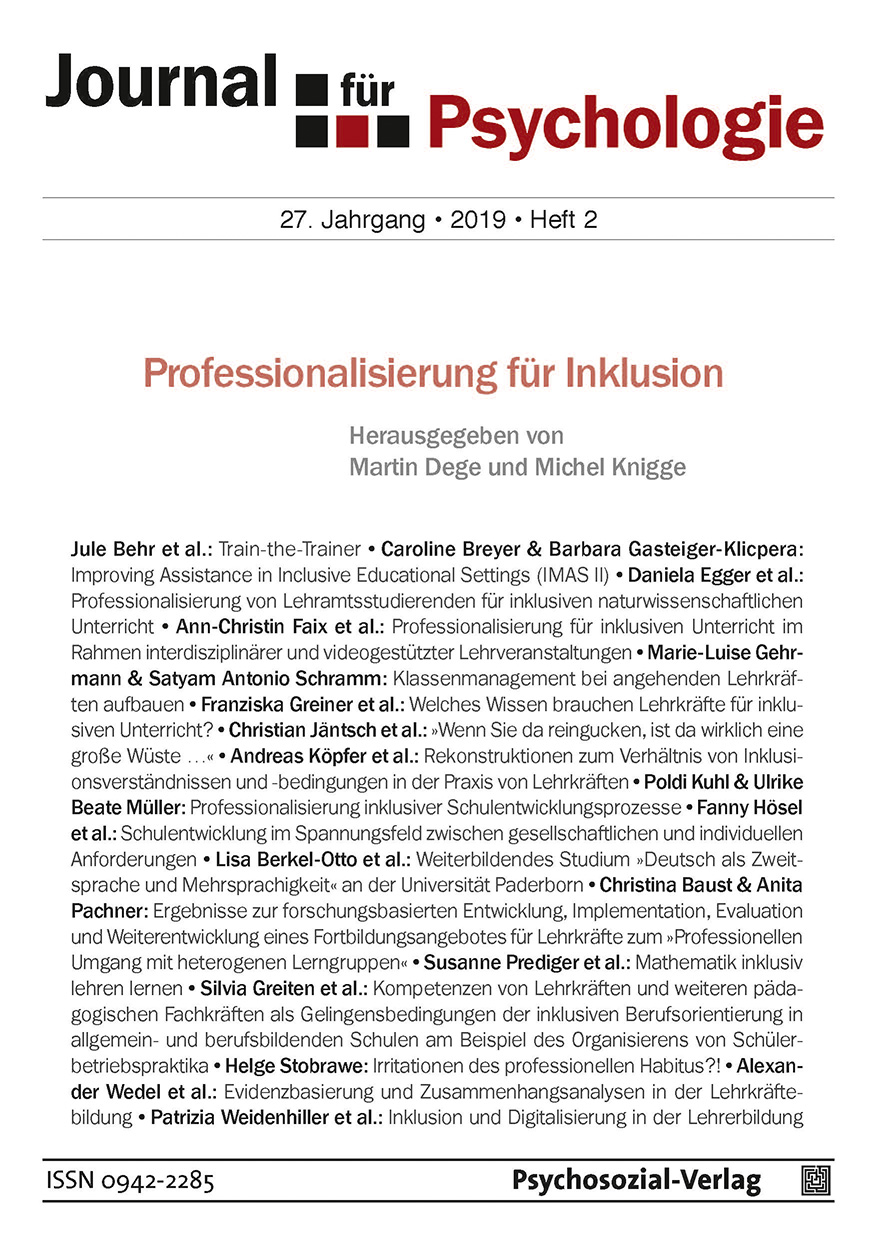Irritations of the professional habitus?! First insights into an exploratory study concerning the practice of action of teachers in inclusive adult education
DOI:
https://doi.org/10.30820/0942-2285-2019-2-336Keywords:
Convention on the Rights of Persons with Disabilities (CRPD), change, professional habitus, adult education, disabilityAbstract
This paper presents the structure and first relevant findings of a qualitative study on the professional habitus of teachers in adult education. The starting point for this study is the process of change concerning the implementation of inclusive adult education promoted by the Convention on the Rights of Persons with Disabilities (CRPD). Therefore, the study focuses on the role the professional habitus has in this process of change. Inclusive adult education is understood as the teaching of disabled and non-disabled students without discrimination and on an equal basis, in this case referring to Literacy and Second Chance Education. The research methodology is the grounded theory approach. The aim is to develop a better understanding of the mechanisms associated with the professional habitus, in relation to the process of change in adult education. The study is located in the research project »Inklusive Bildung in der Alphabetisierungspraxis und im System des Zweiten Bildungswegs – Qualifikationen, Kompetenzen und Bedarfe des pädagogischen Personals« (INAZ) as a PhD project.Downloads
Published
2020-05-01
How to Cite
Stobrawe, Helge. 2020. “Irritations of the Professional habitus?! First Insights into an Exploratory Study Concerning the Practice of Action of Teachers in Inclusive Adult Education”. Journal für Psychologie 27 (2):336-55. https://doi.org/10.30820/0942-2285-2019-2-336.
Issue
Section
Schwerpunkt
License
Copyright (c) 2020 Journal für Psychologie

This work is licensed under a Creative Commons Attribution-NonCommercial-NoDerivatives 4.0 International License.
This license allows private use and unmodified distribution, but prohibits editing and commercial use (further information can be found at: https://creativecommons.org/licenses/by-nc-nd/4.0/).
The terms of the Creative Commons licence only apply to the original material. The reuse of material from other sources (marked with a reference) such as charts, illustrations, photos and text extracts may require further permission for use from the respective copyrights holder.



